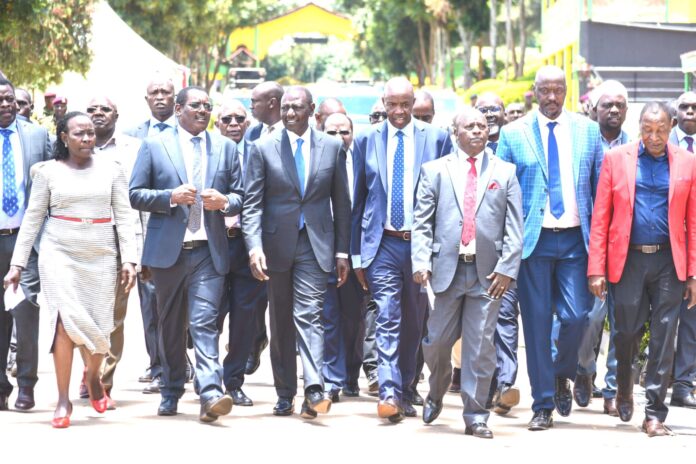Waru’s recent visit to the Nyeri National Polytechnic is seen as a major milestone in the history of technical education in Kenya. As he marked 100 years of existence of the Technical and Vocational Education and Training, the head of state promised to donate the low-cost housing estate to the polytechnic as a sign that programs for practical education and empowerment of Kenya’s youth are very essential. The article takes a close look at what this announcement means against the background of vocational training in Kenya.
Quick Summary:
- President Ruto assures the expansion of Nyeri National Polytechnic through the government’s affordable housing program, focusing on the construction of student hostels.
- The visit coincides with the celebration of 100 years of TVET institutions in Kenya, highlighting the government’s commitment to practical education and youth empowerment.
- In addition to the housing initiative, President Ruto pledges to improve infrastructure by tarmacking roads and upgrading local schools, demonstrating a holistic approach to educational development.
- The President’s emphasis on TVETs reflects the sector’s significant growth, with a notable increase in student enrollment and a shift towards practical skills-based education.
- Despite the popularity of university education, President Ruto applauds the 9000 students who opted for TVETs, underscoring the importance of vocational training in fulfilling the country’s industrialization agenda.
Context and Implications:
President Ruto said the move marked the beginning of a paradigm shift in educational development to focus on practical competencies and vocational training, alongside the traditional pursuit of academic disciplines. The President said the extension of the affordable housing initiative to Nyeri National Polytechnic means the government seeks to alleviate accommodation challenges that the students currently undergo in a bid to enhance proper access to quality education.
Moreover, such commitment to infrastructure improvements is part of a larger redefinition that better serves the environment for learning and supports educational institutions to grow. Tarmacking roads and upgrading schools make the region more accessible while at the same time improving the overall socio-economic development of the region. With such advancements, including technology that has spurred new industries such as local assembly of mobile phones—for example, the Neon Ultra from Safaricom—the levels of employment are bound to go higher.
The centrality of TVETs as the major drivers of industrialization brings to the fore the fact that the sector is at the core of meeting the country’s labour market demands. As Kenya moves towards a knowledge-based economy, the demand for skilled technicians and artisans becomes more pressing, hence the relevance of TVET in churning out a future workforce for the country.
The recognition of competitiveness of TVETs by President Ruto is an attitude shift and a move toward the advancement of diversified educational opportunities. The awarding of students who pursue vocational training acts as a great motivator for the value of practical skills and possibilities of success outside conventional academic paths.
